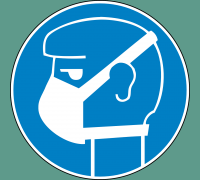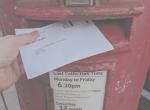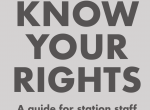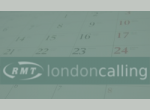Similar topics:
TUBE UNION RMT has today written to the London Mayor, Sadiq Khan, demanding urgent action over the coronavirus and called for the privatised cleaning regime on London Underground to be ended and brought in-house.
The union is calling for action in light of a report in the Evening Standard that New York’s transport authorities were taking measures to meet the public health threats posed by coronavirus by imposing an enhanced cleaning regime in which the subway is to be deep cleaned every three days. In contrast the latest publicly available information on London Underground’s cleaning regime indicates that most lines are only deep cleaned every 21 to 23 days.
The union is demanding to know:
- How often Underground stations, fleet and operational buildings are currently being deep cleaned?
- What measures are being taken to increase deep cleaning on the Underground to help mitigate the spread of the coronavirus
- Are ABM and TFL able to respond quickly to this crisis and how much will TfL have to pay ABM in additional funds to cover any enhanced deep cleaning at this time?
RMT general secretary Mick Cash said:
“It is clear that the privatised cleaning operation on London Underground will not allow a quick and solely public interest response to the coronavirus.
“Unlike London Underground, cleaning on the New York subway is not privatised and benefits from being directly controlled by the public sector. This is why they are able to deep clean the subway every three days, compared to every 21-23 days on the Underground.
“We are in no doubt, as has been shown by research in the healthcare system that outsourced cleaning contracts lead to significantly greater incidents of infection.
“TfL need to take back control and bring cleaning back in-house and into direct London Underground employment.”
The letter
Dear Sadiq,
Urgent action required regarding Coronavirus and London Underground Cleaning
You will be aware that I have written to you under separate cover regarding protecting London Transport workers in respect of the Coronavirus.
I am now also calling for you to take urgent action to establish if the privatised cleaning regime on London Underground is fit for purpose in light of this outbreak and to seek your assurances that the London Undergrounds cleaning contractor, ABM, will not be allowed to profit out of this health crisis.
As you will know, I’ve written to you previously raising concerns about the outsourced cleaning contract on London Underground and asking you to bring this service in-house a position that has been recently supported by your Labour colleagues on the London Assembly.
I am writing again now in light of the report in yesterday’s Evening Standard that New York’s transport authorities were taking measures to meet the public health threats posed by Coronavirus by imposing an enhanced cleaning regime in which the subway is to be deep cleaned every three days.
In contrast, the latest publicly available information on London Underground’s cleaning regime indicates that most lines are only deep cleaned every 21 to 23 days.
Unlike London Underground, cleaning on New York subway is not privatised and benefits from being directly controlled by the public sector. I am concerned that the privatised cleaning on London underground will not allow a quick response to the Coronavirus that is solely based on the public interest.
As you will be aware, there is a growing body of research on the role of mass transit systems in the transmission of pathogens and on the importance of coordinated policies to mitigate the risks of exposure and transmission.
In addition, it is well established from evidence in the healthcare system that outsourced cleaning contracts led to significantly greater incidents of infection. This is partly because of the drive to cut costs in search of profit, in an industry where 85% of costs are workers’ wages, leads to staff loss and turnover and an overstretched workforce. It has also proven harder for authorities to get control of contracts in an emergency after they have been signed.
I believe that similar problems are already detectable on the Underground. In my letter of July last year, I drew your attention to the results of a survey of ABM’s cleaning staff showing that they believed that outsourcing the contract made it harder for them to do a good job and that 78% of them believed passengers would benefit more if their jobs were brought in house.
As a matter of urgency, I would ask you to set out:
- How often Underground stations, fleet and operational buildings are currently being deep cleaned?
- What measures are being taken to increase deep cleaning on the Underground to help mitigate the spread of the Coronavirus
- Are ABM and TFL able to respond quickly to this crisis and how much will TfL have to pay ABM in additional funds to cover any enhanced deep cleaning at this time?
Finally, I would reiterate my call for TfL to take back control of this situation by committing to bring cleaning back in-house and into direct London Underground employment. As the incidence of global epidemics increases and the role of transport systems is better understood, it is essential, I believe, for public authorities to have the control that direct employment and management can bring.
I look forward to hearing from you.
Yours sincerely,
Mick Cash
RMT General Secretary
- 2395 reads






